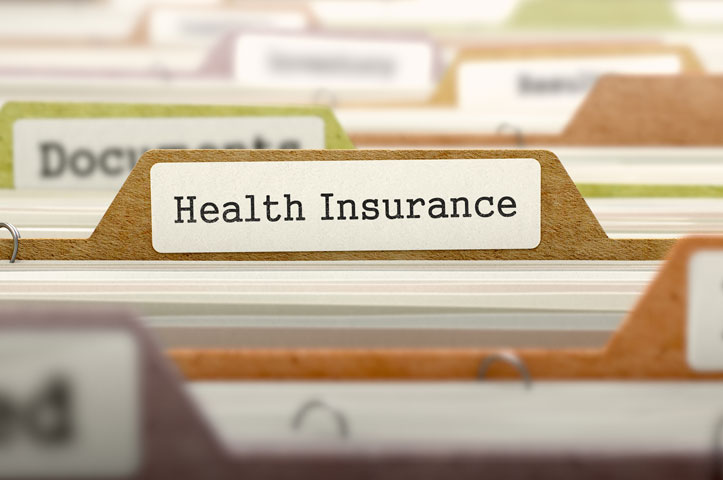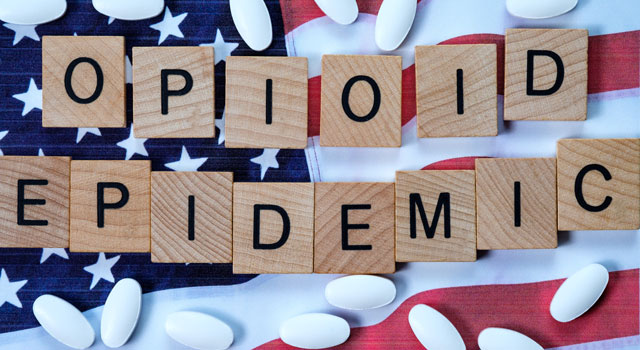In one of the greatest health epidemics facing our country in the last 100 years, the opioid epidemic has everyone talking about how to fight back. One of the primary targets for blame is the major pharmaceutical companies that manufacture and massively pedal these prescription drugs. However, one that is often overlooked, but may be due for a reprimand, is the health insurance companies themselves.
According to a group of researchers from the Johns Hopkins Bloomberg School of Public Health, health insurance providers such as Medicare, Medicaid, and other major private insurers, are missing huge opportunities to steer patients toward a direction of more effective and less addictive pain management alternatives than opioid medications.
“Our findings suggest that both public and private insurers, at least unwittingly, have contributed importantly to the epidemic,” states the studies senior author G. Caleb Alexander, who is in the Bloomberg School’s Department of Epidemiology. Alexander is also the co-director of the Johns Hopkins Center for Drug Safety and Effectiveness.
The Magnitude of the Opioid Epidemic
- According to the U.S Department of Health and Human Services, in the year 2016, over 42,249 Americans died from opioid overdoses.
- More than 2.1 million Americans had a reported opioid use disorder
- Economic costs from the opioid epidemic in the year 2016 were an estimated $504 billion in regards to emergency room visits, coroner labor hours, naloxone administrations, etc.
The Study
Funding and technical assistance were provided by the Office of the Assistant Secretary for Planning and Evaluation at DHHS, along with the National Institutes of Health, and the Centers for Disease Control and Prevention.
Alexander and colleagues on the research team studied different coverage policies of 15 Medicaid plans, 15 Medicare Advantage plans, and 20 commercial health insurance plans.
The plans the team focused on were the most common plans in the most populated states in the country, which, have also been the hardest hit by the epidemic. Along with analyzing the health care plans, researchers also interviewed more than 40 senior healthcare executives of these companies.
The Results
The study revealed that not only have many of the prescription medications that are well known to be addictive have been overprescribed but also that many of the insurance companies failed to apply what is called “utilization management” rules.
In other words, the healthcare companies made no attempt to limit the number of opioids that could be prescribed to a person with chronic pain problems. Other than that, they made no effort to encourage or promote treatment that used less addictive drugs or holistic alternatives. They made no effort to hold prescribers to discouraging opioid use, nor did prescribers have to get any prior approval from the insurance companies before they wrote a prescription.
Not only that, but the study also discovered that both the public and private healthcare insurance companies made it so that their covered opioid medications would be relatively inexpensive to patients. In other words:
“The median commercial plan, for example, placed 74 percent of opioid painkillers in Tier 1, the lowest cost category. The median copay for Tier 1 opioids was just $10 for a month’s supply.”
The Plan of Action
Since the announcement of the opioid epidemic as a National Health Emergency, dozens of state and local legislators and civilians have come forth trying to find alternatives and roadblocks for the opioid epidemic.
The most recent but probably the most effective nationwide has been enforcing the National Prescription Database, which mandates that patients who have addictive or habit-forming medications must be documented, along with their prescription, who prescribes it, and how often they are refilling. While yes, it does seem like a bit of an invasion of privacy, it has already shown results in both cutting back on “doctor shopping” as well as unsafe prescribing practices by many practitioners.
On another note, many states are now enforcing laws that restrict a supply of pain medications to be limited to 3-7 days for people who do not suffer from chronic pain. For example, in the past, a wisdom tooth extraction or sprained ankle could get a patient a months supply of Vicodin. Now, for a minor injury, they are usually prescribed a non-addictive NSAID or higher milligram Tylenol. If they do receive an opioid, they are SUPPOSED to be allotted no more than a weeks supply.
Insurance Company Response
The study wasn’t necessarily intended to attack health insurance companies, however, it did illuminate some areas of much-needed improvement. According to Alexander,
“To their credit, while every health plan we examined was actively trying to combat the epidemic, their focus was high on utilization management on identifying high-volume prescribers and patients, rather than on comprehensive strategies to improve the treatment of chronic pain… Opioids are just one tool in the pain management toolbox, and unfortunately, many of the plans that we examined didn’t have well-developed policies in place to limit their overuse.”
In 2016, the Centers for Disease Control issued a series of recommendations for stricter limits on opioid prescribing, as well as promoting alternative forms of therapy (acupuncture, dry needling, physical therapy) for people with chronic pain outside of active cancer and end of life care. So, the CDC is saying that opioids are pretty much only necessary for people who are dying, yet every year, there are often more opioid medications prescribed than the population in some states.
So, both the pharmaceutical industry and the health insurance industry seem to have a lot of work to do in the resolution of the opioid epidemic. However, on the bright sight, steps ARE being made to a better solution, if we can just put the money at the background, and the lives of American people at the forefront, we have a chance to stop the opioid epidemic forever.
Do You Need Help?
There is absolutely no shame in reaching out for help if you are addicted to opioids and/or any other substances. Addiction is a powerful disease that can infiltrate several different areas of your life if you allow it to persist. Finding a way to obtain treatment can be your greatest chance at living a happy, healthy life free from opioid addiction.
If you need help ending your addiction, do not wait any longer. Contact us right now so that we can get you started on your journey to recovery. We will support and guide you along the way, and help you develop all the skills needed to move forward with a recovered mind, body, and spirit.
Call us today. We are ready to help you stop abusing opioids, regain your focus, and encourage you to live in the light. Nothing is standing in the way except for yourself. Reach out right now. We can help.







